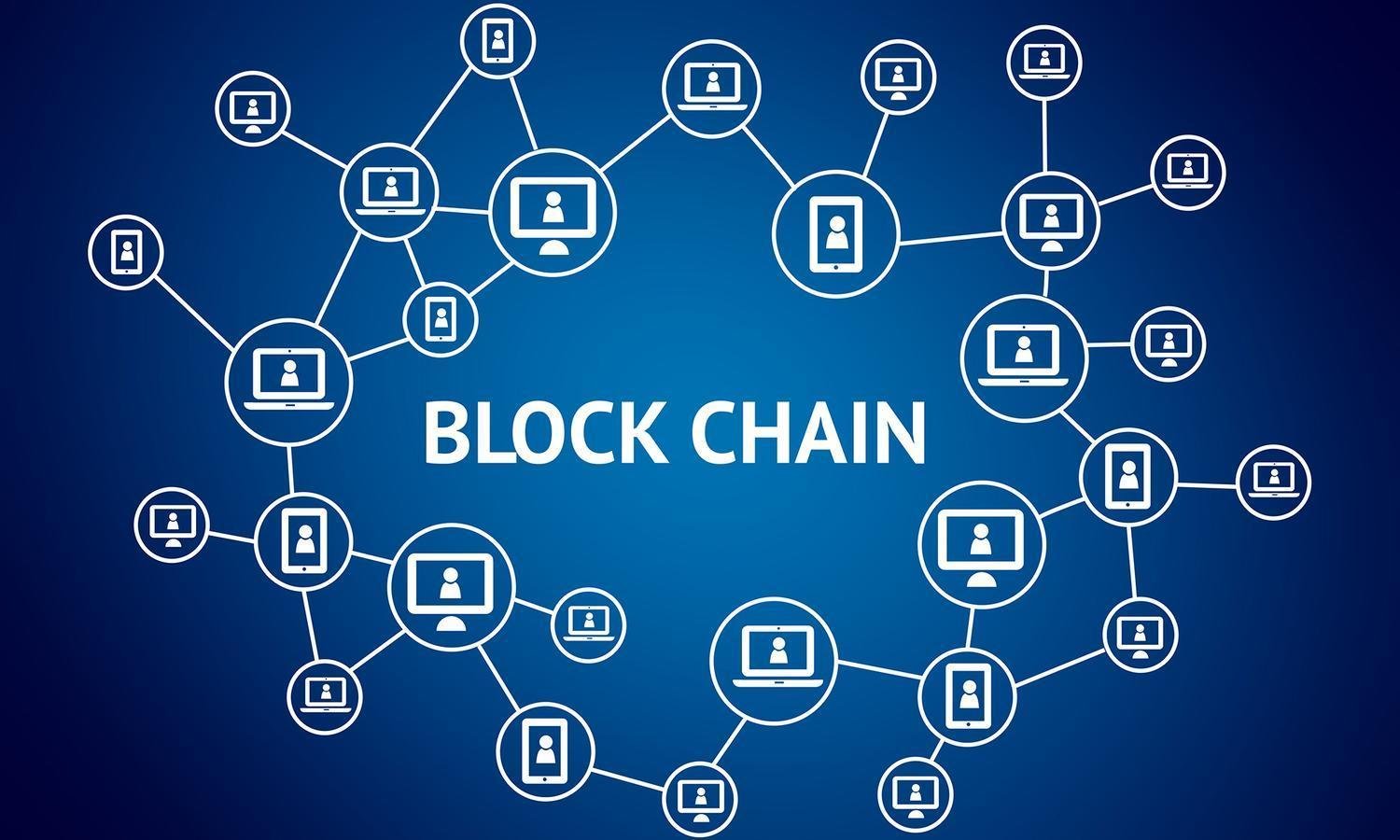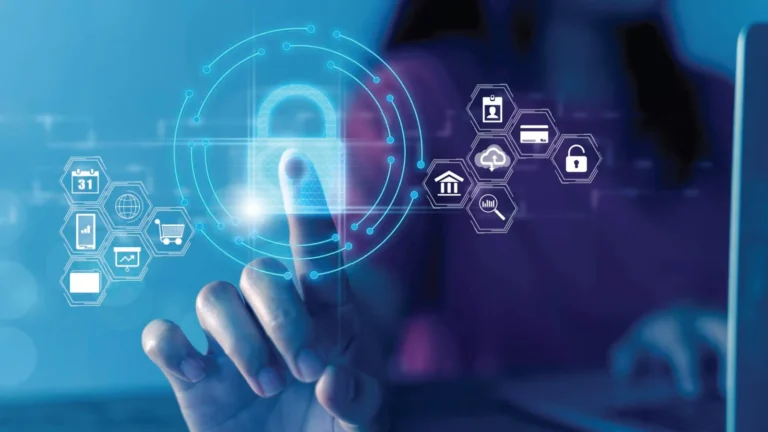The rapidly evolving blockchain ecosystem has created an unprecedented demand for cybersecurity professionals who understand decentralized technologies. A blockchain security audit course represents one of the most valuable educational investments you can make in today’s digital economy. With over $3.8 billion lost to DeFi exploits in 2022 alone, organizations desperately need skilled auditors who can identify vulnerabilities before malicious actors exploit them.
Whether you’re a cybersecurity professional looking to transition into Web3, a developer seeking to enhance your security skills, or an entrepreneur wanting to understand blockchain risks, a comprehensive blockchain security audit course will provide you with the expertise needed to thrive in this lucrative field. The average blockchain security auditor earns between $120,000 to $250,000 annually, making this one of the highest-paying careers in cybersecurity today.
What is Blockchain Security Auditing
Blockchain security auditing is the systematic process of examining blockchain networks, smart contracts, and decentralized applications (DApps) to identify vulnerabilities, security flaws, and potential attack vectors. Unlike traditional cybersecurity auditing, blockchain security requires specialized knowledge of cryptographic principles, consensus mechanisms, and smart contract programming languages like Solidity.
The decentralized nature of blockchain technology presents unique security challenges that traditional audit methodologies cannot address. Smart contracts, once deployed, become immutable, making pre-deployment security audits critical for preventing costly exploits. This immutability factor has created an entirely new category of security professionals who specialize in blockchain-specific vulnerabilities.
Professional auditors examine various components of blockchain systems, including consensus algorithms, network protocols, wallet implementations, bridge contracts, and governance mechanisms. They also assess the economic incentives built into protocols to identify potential game-theoretic attacks that could compromise system integrity.
Why Choose a Blockchain Security Audit Course
High Demand Career Opportunities
The blockchain security audit field offers exceptional career prospects with minimal competition. Major companies like Ethereum Foundation, Chainlink, and Polygon actively seek qualified auditors to secure their protocols. Additionally, audit firms such as ConsenSys Diligence, OpenZeppelin, and Trail of Bits consistently recruit talented professionals with proper blockchain security training.
Lucrative Compensation Packages
Blockchain security professionals command premium salaries due to their specialized expertise. Entry-level positions start around $80,000 annually, while experienced auditors can earn $300,000 or more. Many professionals also supplement their income through bug bounty programs, where finding critical vulnerabilities can result in rewards exceeding $100,000.
Remote Work Flexibility
Most blockchain security audit positions offer remote work opportunities, allowing professionals to work with global teams while maintaining work-life balance. The decentralized nature of blockchain organizations naturally supports distributed team structures, making location independence a standard benefit.
Continuous Learning Environment
The blockchain space evolves rapidly, ensuring that security auditors remain engaged with cutting-edge technologies. New protocols, consensus mechanisms, and attack vectors emerge regularly, creating an intellectually stimulating career path that prevents professional stagnation.
Core Components of a Quality Blockchain Security Audit Course

Foundational Blockchain Knowledge
A comprehensive course begins with fundamental blockchain concepts, including distributed ledger technology, cryptographic hashing, digital signatures, and consensus mechanisms. Students learn about different blockchain architectures, from Bitcoin’s UTXO model to Ethereum’s account-based system.
Understanding various consensus algorithms like Proof of Work, Proof of Stake, and newer mechanisms like Proof of History becomes essential for identifying potential attack vectors. The course should cover blockchain trilemma concepts, examining trade-offs between decentralization, security, and scalability.
Smart Contract Security Analysis
Smart contract auditing forms the core of blockchain security education. Students learn to identify common vulnerabilities such as reentrancy attacks, integer overflows, front-running, and flash loan exploits. The curriculum should include hands-on analysis of real-world exploits, examining how attackers compromised major protocols.
Advanced topics include understanding gas optimization techniques, proxy patterns, and upgrade mechanisms. Students learn to use automated analysis tools like Slither, Mythril, and Securify while understanding their limitations and the need for manual review.
DeFi Protocol Security
Decentralized Finance represents the largest segment of blockchain applications, making DeFi security expertise crucial for auditors. Courses should cover automated market makers (AMMs), lending protocols, yield farming mechanisms, and cross-chain bridges.
Students examine oracle manipulation attacks, governance token vulnerabilities, and economic attack vectors specific to DeFi protocols. Understanding liquidity mechanics, impermanent loss, and MEV (Maximal Extractable Value) becomes essential for comprehensive security analysis.
Practical Audit Methodologies
Professional audit courses teach systematic methodologies for conducting thorough security reviews. Students learn to create comprehensive audit reports, risk assessment frameworks, and remediation recommendations that clients can implement effectively.
The curriculum includes project management aspects of audit engagements, including scope definition, timeline management, and client communication strategies. Students practice using industry-standard tools and learn to balance thoroughness with efficiency in commercial audit environments.
Popular Blockchain Security Audit Course Providers
Secureum
Secureum offers one of the most comprehensive blockchain security audit courses available today. Their curriculum covers everything from basic Solidity programming to advanced exploit techniques. The course includes hands-on labs, real-world case studies, and mentorship from experienced auditors working at top firms.
ConsenSys Academy
ConsenSys Academy provides structured learning paths for blockchain security professionals. Their courses combine theoretical knowledge with practical applications, including access to ConsenSys Diligence’s internal tools and methodologies. Graduates often receive preferential consideration for positions within the ConsenSys ecosystem.
OpenZeppelin Defender
OpenZeppelin offers specialized courses focusing on smart contract security best practices. Their curriculum emphasizes preventive security measures and secure development lifecycles. Students gain access to OpenZeppelin’s extensive security library and automated monitoring tools.
Blockchain Security Alliance
The Blockchain Security Alliance provides vendor-neutral education covering multiple blockchain platforms and security frameworks. Their courses include certification programs recognized by major employers throughout the industry.
Essential Skills Developed Through Blockchain Security Audit Training

Technical Proficiency
Students develop expertise in multiple programming languages, including Solidity, Vyper, Rust, and Go. They learn to read and analyze complex smart contract code, identifying subtle vulnerabilities that automated tools might miss.
Database management skills become important for analyzing blockchain transaction patterns and identifying suspicious activities. Students also gain proficiency with various blockchain development frameworks and testing environments.
Critical Thinking and Problem Solving
Blockchain security auditing requires exceptional analytical skills to understand complex protocol mechanics and identify potential attack vectors. Students learn to think like attackers while maintaining defensive perspectives.
The interdisciplinary nature of blockchain security demands understanding of cryptography, game theory, economics, and software engineering principles. This broad knowledge base enables auditors to identify vulnerabilities across multiple domains.
Communication and Documentation
Professional auditors must effectively communicate technical findings to diverse stakeholders, including developers, executives, and legal teams. Courses emphasize clear technical writing, risk assessment communication, and stakeholder management.
Students learn to create comprehensive audit reports that balance technical accuracy with accessibility for non-technical readers. They also develop presentation skills for delivering findings to client teams and board members.
Career Paths After Completing a Blockchain Security Audit Course
Independent Security Consultant
Many graduates establish independent consulting practices, offering audit services to blockchain startups and established protocols. Independent consultants enjoy maximum flexibility and potentially higher earnings but must manage business development and client acquisition.
Audit Firm Employment
Major audit firms actively recruit qualified blockchain security professionals. Positions range from junior auditor roles to senior consultants and practice leaders. Firm employment provides structured career progression, mentorship opportunities, and exposure to diverse client engagements.
In-House Security Roles
Blockchain companies increasingly hire dedicated security professionals to oversee internal security practices and manage external audit relationships. These positions offer deep protocol knowledge and long-term project involvement.
Security Research and Development
Some graduates pursue research roles, developing new security tools, methodologies, and academic research. These positions often combine industry work with academic collaboration and conference presentations.
Current Industry Trends Affecting Blockchain Security Education
Layer 2 Scaling Solutions
The proliferation of Layer 2 solutions like Polygon, Arbitrum, and Optimism creates new security considerations for auditors. Cross-layer communication, bridge security, and rollup mechanisms require specialized knowledge that traditional blockchain security training might not cover.
Cross-Chain Infrastructure
The growth of multi-chain ecosystems increases the complexity of security auditing. Auditors must understand various blockchain architectures and the security implications of cross-chain asset transfers and communication protocols.
Regulatory Compliance Integration
Increasing regulatory attention on DeFi protocols requires auditors to understand compliance requirements alongside technical security. This trend creates opportunities for professionals who combine security expertise with regulatory knowledge.
Institutional Adoption
As traditional financial institutions adopt blockchain technology, the demand for enterprise-grade security auditing increases. This trend creates opportunities for auditors who understand both blockchain security and traditional financial system requirements.
How to Choose the Right Blockchain Security Audit Course
Assess Your Current Skill Level
Before selecting a course, honestly evaluate your existing technical background. Complete beginners need foundational programming and cybersecurity knowledge before tackling advanced blockchain security concepts. Experienced developers might benefit from specialized courses focusing on security-specific topics.
Consider Learning Format Preferences
Different courses offer various learning formats, from self-paced online modules to intensive bootcamps and university-style programs. Consider your schedule, learning style, and career timeline when selecting appropriate formats.
Evaluate Instructor Credentials
Look for courses taught by practicing blockchain security professionals with real-world audit experience. Instructors should have verifiable track records of successful audits and recognition within the blockchain security community.
Examine Practical Components
Quality courses include substantial hands-on components, allowing students to practice audit techniques on real smart contracts. Look for programs that provide access to vulnerable contract examples and guided exploit exercises.
Review Alumni Outcomes
Research the career outcomes of previous course graduates. Strong programs should provide placement statistics and alumni testimonials demonstrating successful career transitions into blockchain security roles.
Also Read: Best Altcoin Trading Platform Reviews 2025 Top 10 Exchanges Compared
Advanced Topics in Professional Blockchain Security Audit Courses
Zero-Knowledge Proof Security
Modern blockchain applications increasingly utilize zero-knowledge proofs for privacy and scalability. Advanced courses cover zk-SNARK and zk-STARK security considerations, including trusted setup vulnerabilities and circuit analysis techniques.
MEV and Flashloan Analysis
Maximum Extractable Value represents a sophisticated attack vector that requires deep understanding of blockchain transaction ordering and DeFi protocol mechanics. Advanced courses teach students to identify and mitigate MEV-related vulnerabilities.
Governance Attack Vectors
Decentralized governance systems introduce unique security considerations beyond traditional smart contract vulnerabilities. Students learn to analyze governance token distribution, voting mechanisms, and proposal execution systems for potential manipulation.
Cross-Chain Bridge Security
Bridge contracts represent some of the most complex and vulnerable components in blockchain ecosystems. Advanced courses provide specialized training in multi-signature schemes, validator set management, and cross-chain message verification.
Certification and Professional Development
Industry-Recognized Certifications
Several organizations offer blockchain security certifications that validate professional competency. These certifications often require demonstrating practical skills through capstone projects or supervised audit work.
Continuing Education Requirements
The rapidly evolving blockchain landscape requires continuous learning to maintain professional relevance. Most certification programs include ongoing education requirements and regular recertification processes.
Professional Association Membership
Joining professional organizations like the Blockchain Security Alliance provides networking opportunities, industry updates, and access to advanced training resources. These associations often offer member-exclusive events and certification programs.
Conference Participation and Networking
Industry conferences provide opportunities to learn about emerging threats, network with potential employers, and showcase expertise through speaking opportunities. Regular conference attendance helps professionals stay current with industry developments.
Investment Considerations and Return on Investment
Course Costs and Financing Options
Blockchain security audit courses range from free online resources to intensive programs costing $10,000 or more. Many employers offer tuition reimbursement for relevant professional development, making expensive programs more accessible.
Time Investment and Opportunity Cost
Most comprehensive programs require 6-12 months of study, depending on prior experience and time availability. Students should consider opportunity costs and plan career transitions accordingly.
Expected Salary Increases
Graduates typically experience significant salary increases, with many doubling their pre-course compensation within two years. The specialized nature of blockchain security creates premium earning opportunities that justify substantial educational investments.
Long-term Career Value
Blockchain technology continues expanding into new industries and applications, creating sustained demand for security professionals. The skills developed through comprehensive audit training remain valuable across evolving blockchain platforms and protocols.
Common Challenges and How to Overcome Them
Technical Complexity
Blockchain security combines multiple complex technical domains, potentially overwhelming new students. Successful learners break down complex topics into manageable components and practice regularly with hands-on exercises.
Keeping Up with Rapid Changes
The blockchain space evolves quickly, making course content potentially outdated before completion. Quality programs regularly update curricula and provide ongoing access to current resources and industry updates.
Practical Experience Gaps
Academic learning cannot fully replace real-world audit experience. Students should seek internship opportunities, contribute to open-source security tools, and participate in bug bounty programs to gain practical exposure.
Building Professional Credibility
New entrants to blockchain security may struggle to establish credibility without previous audit experience. Building a portfolio of personal security research, contributing to security discussions, and networking with established professionals helps overcome this challenge.
Future of Blockchain Security Education
Emerging Technologies Integration
Future blockchain security courses will need to address quantum computing threats, post-quantum cryptography, and artificial intelligence applications in blockchain security. Educational programs must evolve to cover these emerging technologies and their security implications.
Standardization of Curriculum
As the industry matures, we can expect increased standardization of blockchain security education curricula. This standardization will help employers evaluate candidate qualifications and ensure consistent skill levels across graduates.
Integration with Traditional Cybersecurity
Blockchain security education will likely become more integrated with traditional cybersecurity programs as the technologies converge. This integration will create more comprehensive security professionals capable of addressing hybrid environments.
Increased Accessibility and Democratization
Educational technology advances will make high-quality blockchain security training more accessible to global audiences. Virtual reality training environments and AI-powered tutoring systems may revolutionize how students learn complex security concepts.
Conclusion
The blockchain security audit field represents one of the most promising career opportunities in modern cybersecurity. A comprehensive blockchain security audit course provides the foundation for entering this lucrative and intellectually rewarding profession. With proper training, dedication, and continuous learning, professionals can build successful careers protecting the decentralized future of finance and technology.
The investment in quality blockchain security education pays dividends through high salaries, flexible work arrangements, and the satisfaction of protecting billions of dollars in digital assets. As the blockchain ecosystem continues expanding into new industries and applications, the demand for skilled security auditors will only increase.
Whether you’re beginning your cybersecurity career or transitioning from traditional IT security roles, now is the ideal time to invest in blockchain security audit course training. The combination of high demand, limited supply of qualified professionals, and substantial compensation makes this educational investme



